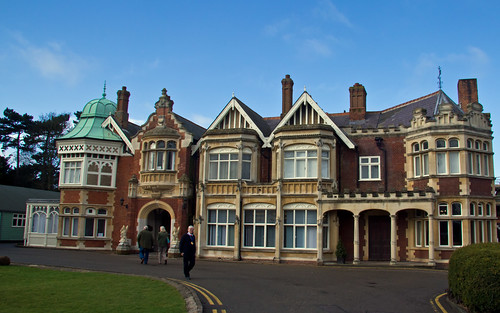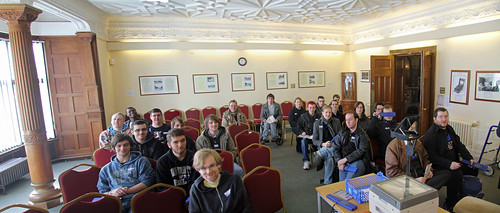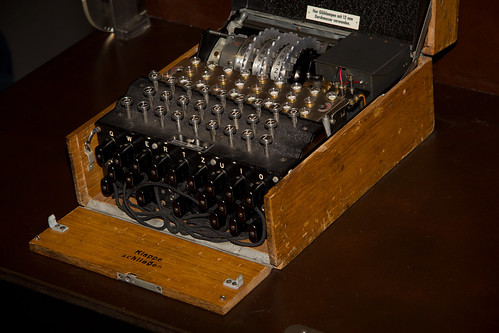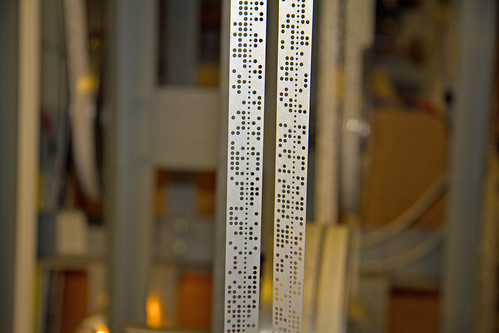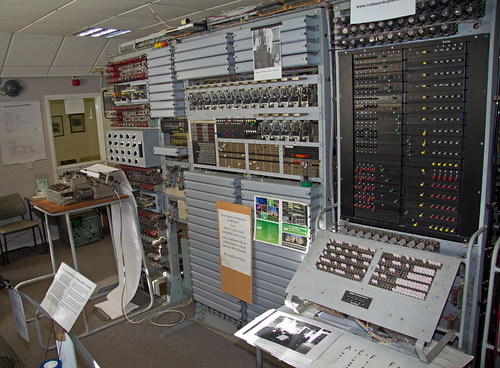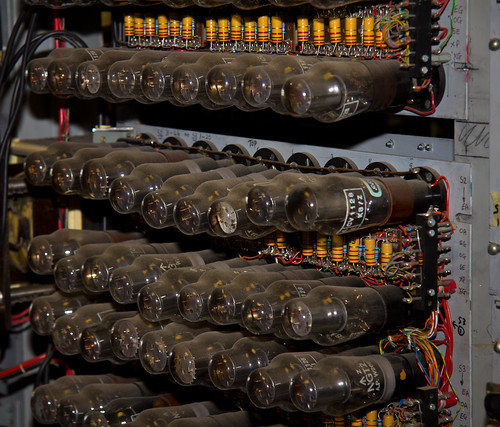Bletchley Park Fun and Games
 Saturday, February 12, 2011 at 10:25PM
Saturday, February 12, 2011 at 10:25PM We’ve been meaning to go to Bletchley Park for ages. Today, thanks to the efforts of Emma, we managed to get there. It meant that we had to set of really early from Hull, but nobody minded that much.
This is us, gathered in the “Music” room for a briefing. If you don’t know about Bletchley Park, you should. It is how we won the Second World War. All the way through the war this place was effectively a “decoding factory”. Great minds like Alan Turing figured out how to break the German cyphers and an army of engineers, technicians and clerical support staff produced thousands of decoded messages every day. They even managed to build the first electronic computer to read the messages sent by German High Command.
The secrets of what went on in this unassuming country estate only started to come out in the nineteen eighties, over forty years after the end of the war. Now you can walk around, meet up with some of the people who were there and see the machines that were built to crack the codes.
This is what we were up against. A battery powered, portable encoding machine called “Enigma”. By a cunning combination of a plug board and encoding wheels this mapped whatever the user typed onto a meaningless sequence of letters. All the receiver has to do is set up another Enigma machine with the same arrangement of plug board and wheels, type in the encrypted text and out comes the original. The encrypted messages were broadcast so that anyone could receive them (including us) but unless you knew the settings of the the sender all you would see is guacamole.
However, the clever folks at Bletchley Park built machines that could try thousands of possible settings of the machine, looking for stock phrases and exploiting the few weaknesses in the Enigma machines. These devices, called “bombes” (apparently because the Polish mathematician that first thought of them did so at an ice-cream shop and bombe is Polish for a type of ice cream) would click through combinations looking for a “stop” which might be the code settings for that message. And it worked. On an industrial scale. Thousands of people worked on site receiving, analysing and finally sending a steady stream of intelligence back to UK commanders.
Not content with cracking “every day” signals they then moved on to cracking encrypted teletype signals used for high level communication. These were manually transcribed onto paper tape which was then analysed by an electronic computer called Colossus, the world’s first.
This is the five hole paper tape containing the incoming message. This was decoded by hand from graphs of the teletype signal that were read by human eye.
The front of Colossus
Some of the valves
Some of the wires….
That it worked at all was astonishing, nobody had built anything of its complexity before. But work it did, on one memorable occasion the UK high command was able to read messages before they arrived at their German counterparts.
Bletchley Park is also home to a Museum of Computing and a whole host of other interesting exhibitions. But these are for another post.
We clambered aboard the coach just as the museum closed and made our way back to Hull. Great day. Thanks again to Emma for sorting it all out.
